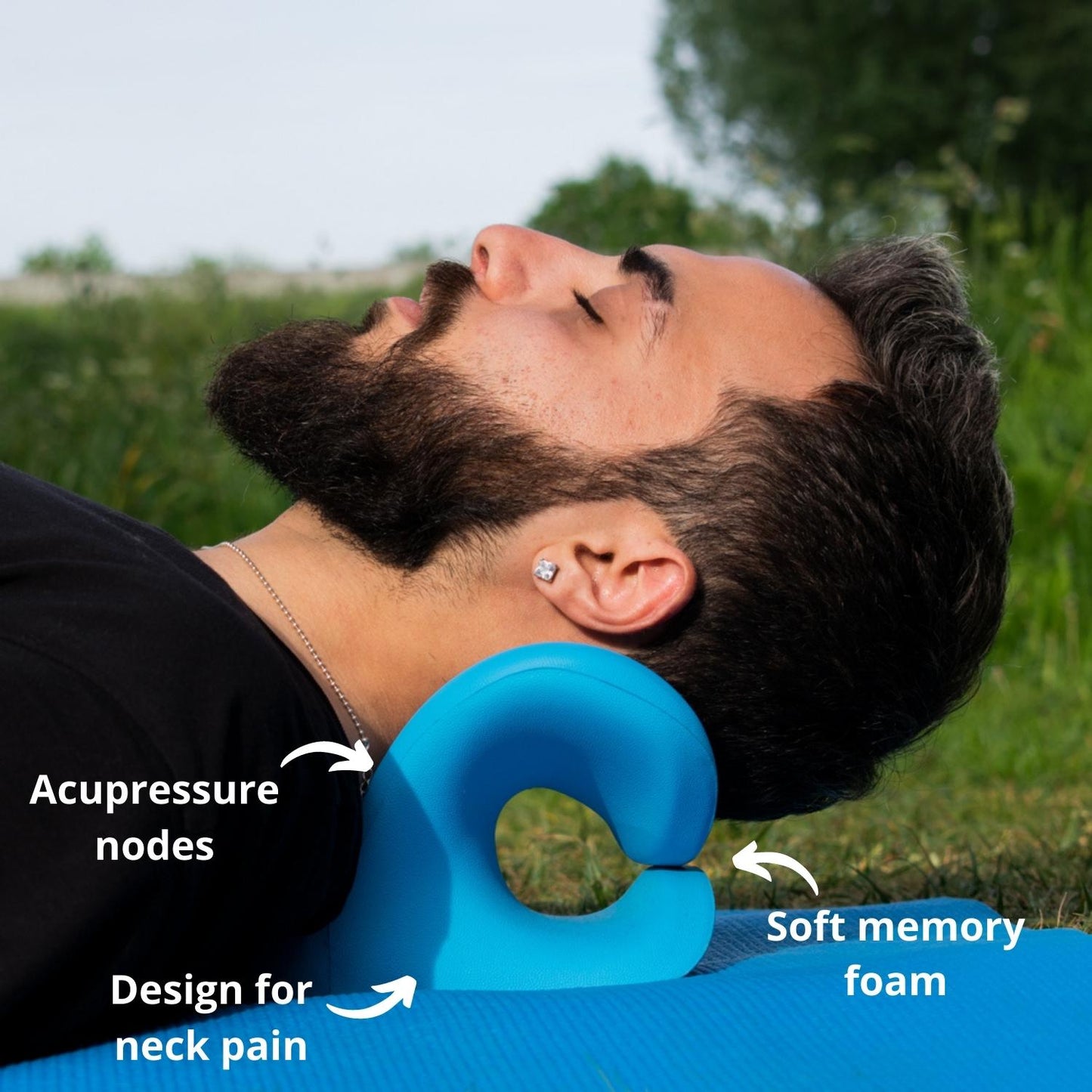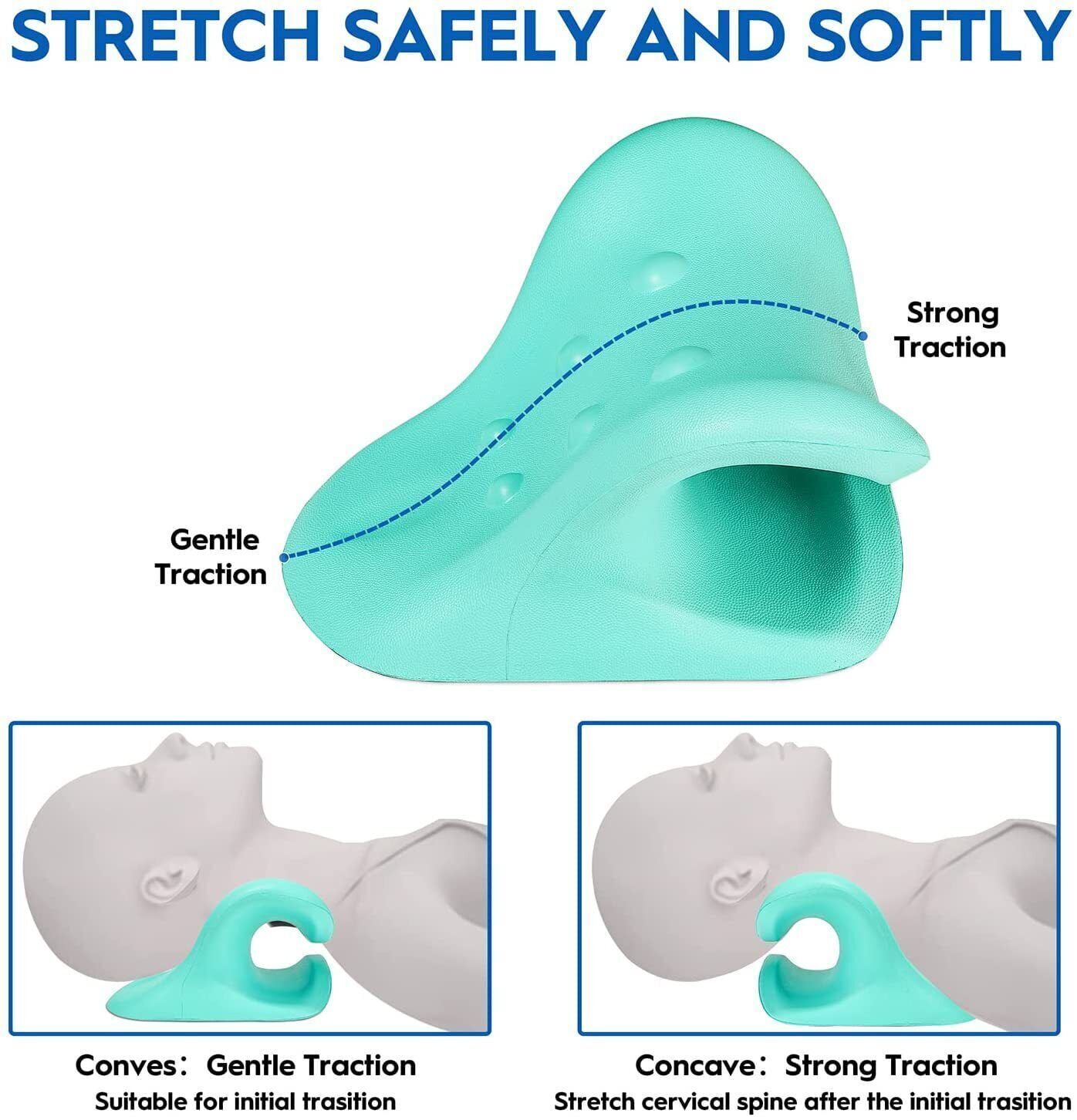The Impact of Stress on Neck Discomfort: Strategies for Minimizing Tension and Pain
In today's fast-paced world, it's no trick that stress has actually become a prevalent variable in the onset and exacerbation of neck discomfort. Join us on a trip to decipher the effect of tension on neck discomfort and discover effective methods to alleviate pain and boost total top quality of life.
Understanding Stress-Related Neck Pain
Stress-related neck pain can show up as tension, stiffness, or pain in the neck and shoulder location. The connection between anxiety and neck discomfort lies in the body's physiological action to tension, which can result in muscle stress and rigidity in the neck muscles.

Identifying Common Stress Locations
Frequently experienced by individuals under anxiety, stress locations in the body can provide valuable insights right into the physical symptoms of emotional stress. One common tension location is the neck, where tension frequently materializes literally. Stress frustrations, rigid neck muscular tissues, and limited series of movement are usual symptoms of stress-related neck stress. The shoulders are one more typical area where stress builds up. Anxiety can create the muscles in the shoulders to tighten, bring about pain and discomfort. Additionally, the upper back is vulnerable to stress accumulation, specifically in individuals who experience chronic stress. Poor position and long term resting can aggravate stress in this field. The jaw is likewise a typical place for stress-related stress, as many individuals clinch their jaw or grind their teeth when emphasized. Knowing these usual stress locations can help people recognize the physical indications of stress and anxiety and take actions to address them before they intensify into chronic pain or discomfort.
Executing Leisure Methods
To efficiently manage stress-related stress in the body, applying relaxation strategies is essential. Relaxation methods are important devices for reducing neck pain triggered by anxiety. Deep breathing workouts can assist soothe the mind and relax stressful muscles in the neck and shoulders (neck cloud). Practicing mindfulness reflection can additionally be valuable in minimizing tension and advertising leisure. Dynamic muscular tissue relaxation, where you methodically stressful and afterwards kick back various muscular tissue groups, can launch built-up stress in the neck area. Additionally, activities like yoga and tai chi integrate both physical movement and leisure, making them effective practices for reducing anxiety and neck discomfort. Taking normal breaks throughout the day to stretch and unwind can stop muscular tissue rigidity and stress from gathering. By incorporating these relaxation strategies into your daily routine, you can help handle anxiety levels, minimize tension in the neck, and ease pain connected with stress-induced neck discomfort.
Incorporating Self-Care Practices
Including self-care practices is crucial for maintaining overall health and managing stress-related neck discomfort effectively. Engaging in regular physical activity, such as mild extending exercises or yoga exercise, can help relieve tension in the neck and shoulders. Practicing good posture throughout the day and taking regular breaks from prolonged resting or display time can additionally avoid strain on the neck muscle mass.
In addition, prioritizing appropriate sleep and developing a consistent sleep regimen can contribute dramatically to discover this decreasing tension degrees and promoting relaxation. Developing a relaxing going to bed routine, such as checking out a book or taking a cozy bath, can assist prepare the mind and body for relaxing rest. In addition, keeping a well balanced diet plan rich in nutrients and staying hydrated can support overall health and wellness and decrease swelling that might exacerbate neck discomfort.
Integrating mindfulness techniques, such as deep breathing exercises or reflection, can aid take care of anxiety and advertise leisure. Taking time for oneself, participating in leisure activities, and establishing limits to shield individual time are likewise crucial facets of self-care that can add to minimizing stress and alleviating neck discomfort.
Seeking Specialist Aid
Exactly how can people efficiently deal with persistent neck discomfort that is affecting their daily life and well-being? Looking for specialist assistance can be an important step in managing and alleviating neck pain.
Chiropractors focus on back manipulation strategies to enhance placement and lower tension Resources in the neck area. Physiotherapists use targeted stretches and exercises to enhance muscles, enhance flexibility, and boost general neck feature. Orthopedic specialists can give advanced clinical treatments such as shots or medical options for serious instances of neck pain.
Final Thought

Stress-related neck pain can show up as stress, tightness, or discomfort in the neck and shoulder location. The link between anxiety and neck pain lies in the body's physiological action to tension, which can result in muscle tension and tightness in the neck muscle mass. Stress headaches, stiff neck muscles, and restricted range of motion are common signs and symptoms of stress-related neck tension. By integrating these leisure strategies into visit this web-site your everyday routine, you can assist manage stress and anxiety levels, reduce tension in the neck, and reduce pain associated with stress-induced neck pain.
